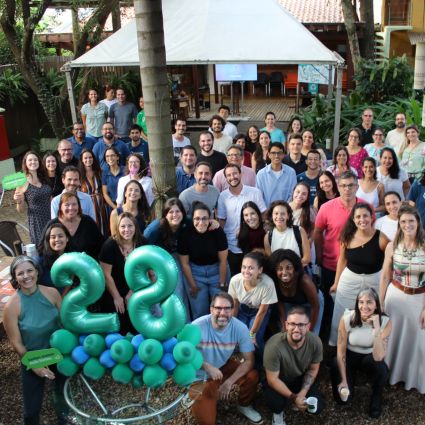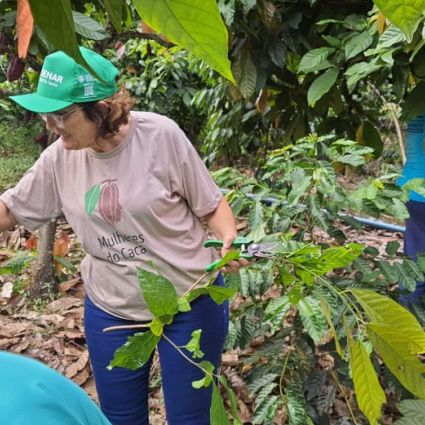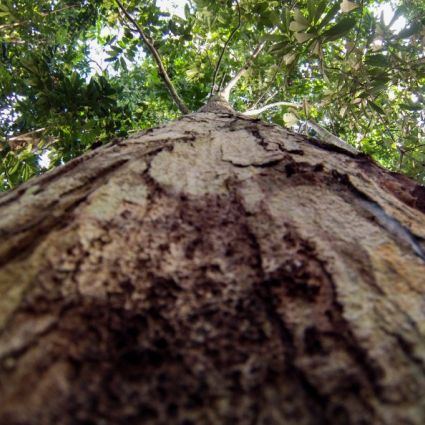Imaflora has long championed low-emission production models in the agricultural and forestry sectors, in combination with initiatives that remove greenhouse gases from the atmosphere and drive public policies in this direction. After all, adopting good practices in the field helps prevent the need to expand farmland into new areas, reducing deforestation.
With less deforestation, the forest can play its crucial role in mitigating the effects of climate crisis - ultimately benefiting agriculture itself. On the eve of the COP in Brazil and amid increasingly severe weather events underscoring the urgency of the crisis, we must increase our influence on both public and priate organisations to speed up this transformation.
To put it into perspective, agriculture is one of the leading sources of emissions in Brazil, second only to Land Use and Land Change. But it is entirely possible to reduce this percentage. In 2024, Imaflora contributed to the Climate Observatory’s proposal for Brazil’s updated Nationally Determined Contribution (NDC), setting national targets for reducing emissions
The government presented its proposal at the COP in 2024, but has yet to detail the sector-specific plans. The Climate Observatory’s proposal represents an opportunity for the many studies Imaflora has developed over nearly three decades to help guide this transformation—showing that the sector has the potential to cut its emissions by more than 50%, through practices such as integrating crops, livestock, and forests.
Other policies that Imaflora is active in are the methane agenda, aimed at livestock farming, and the proposal for criteria for the Brazilian rural taxonomy. The idea is to have a guide about what is or is not sustainable in our agricultural sector to help direct credit lines such as the Safra Plan and private banks.
Imaflora also signed a technical co-operation agreement with the Ministry of Agriculture and Livestock to oversee the ABC+ Plan. This will make it possible to measure the effectiveness and impact of the Plan, to know where it is going and whether it is meeting its objectives. It is yet another example of how the knowledge garnered over the years can be used to assess policies and point the way towards truly sustainable agriculture and livestock farming.
One milestone worth highlighting was the launch of the National Plan for the Individual Identification of Cattle and Buffaloes by Brazil’s Ministry of Agriculture and Livestock. Set to cover the entire Brazilian herd by 2032, the policy aims to establish full traceability of the country’s cattle, tracking each identified animal’s history, current location, and movement over time. As a result, practices like deforestation should lose momentum across the production chain, leading to lower greenhouse gas emissions and contributing to tackling the climate crisis.
In order to provide transparency and pinpoint practices that are in fact sustainable, the government created the Agro Brasil+Sustentável Platform to monitor rural properties in terms of environmental, social and corporate governance. Imaflora contributed to the development of the platform in many ways, including through its experience with the Beef on Track programme, whose criteria were adopted as a benchmark for the platform.
One of the ways to help fight deforestation is by ensuring the sustainable use of public forests that are otherwise left vulnerable to illegal activities. In the forestry sector, we partnered with the Brazilian Forestry Service to boost forestry concessions in the Amazon. As part of this effort, we conducted an assessment to understand why funds from forest concessions were not reaching the states and municipalities where these forests are located - and we helped to unlock those resources.
All these initiatives demonstrate that Brazil has a range of solutions at its disposal to change the way it produces food and forestry products while still reducing adverse impacts and cutting emissions. In 2025, with the COP taking place in the heart of the Amazon, it will be the ideal time to further develop and leverage these agendas.



